GSBS Alum Kelly Reveles Follows Her Passion As an Assistant Professor
Kelly Reveles is an alumnae of the Translational Science Ph.D. program, a partnership between The University of Texas Health Science Center at San Antonio (UTHSCSA), The University of Texas at San Antonio (UTSA), The University of Texas at Austin (UT Austin), and The University of Texas School of Public Health (UTSPH) Regional Campus in San Antonio.
What is your title and
what do you do now?
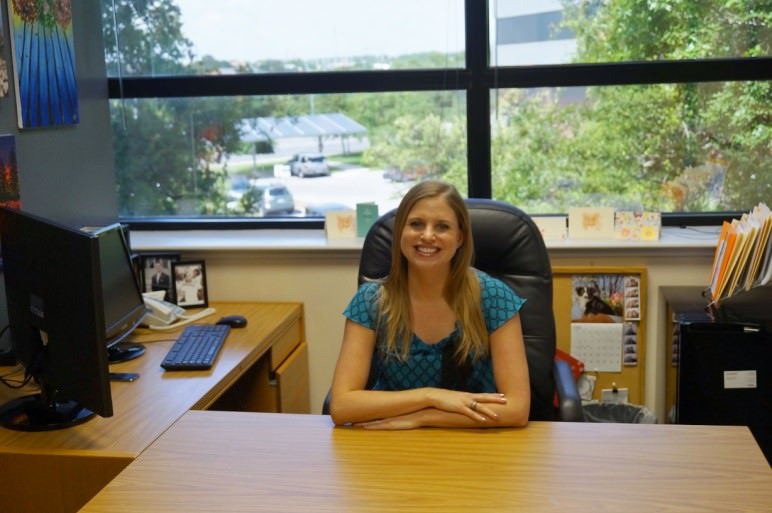
I’m currently an assistant professor in the College of Pharmacy at The
University of Texas at Austin. In addition, I’m also an adjoint assistant professor in the Pharmacotherapy Education and Research Center at University of Texas Health Science Center at San
Antonio.
My primary appointment is a tenure-track
academic position with the UT Austin College of Pharmacy. My responsibilities
include developing and maintaining an independent research program, teaching
and mentoring the next generation of pharmacists and scientists, and
participating in university and professional service activities.
My research
program focuses on reducing the incidence and improving the outcomes of Clostridium difficile infections by
designing, testing, and implementing effective clinical and translational
strategies.
My research approach emphasizes multidisciplinary, collaborative
research in the areas of large database design and analysis,
pharmacoepidemiology, comparative-effectiveness research, and implementation
science.
Can you tell me about
your career path? What did you study at UT Health Science Center and how did
your graduate school education prepare you for your career?
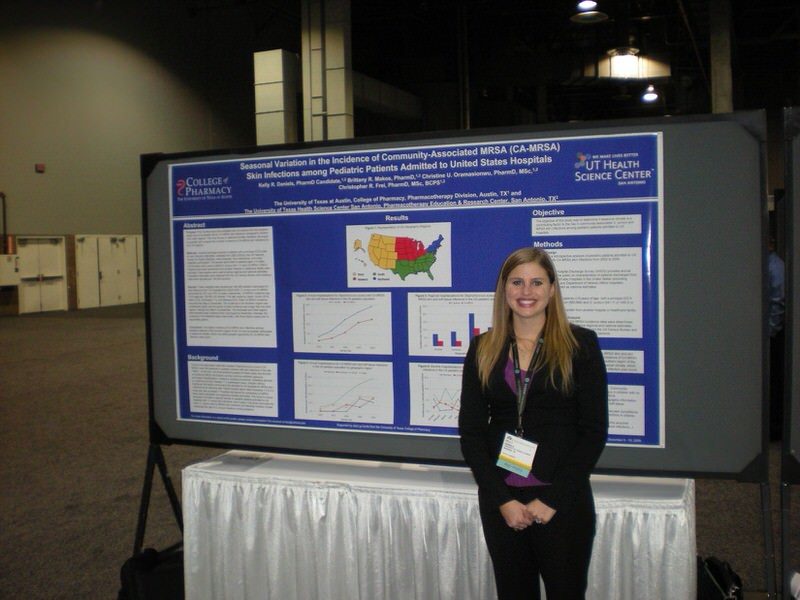
In 2010, I obtained a Doctor of Pharmacy degree
from UT Austin. This program provided me exceptional clinical training. My true
passion, however, has always been in clinical research and the opportunity to
improve patient safety through research.
Throughout my professional program, I
searched for opportunities to enhance my research skills and to discover the
right path to become a successful researcher. I began this journey during my
final two years of the pharmacy program, at which time I served as a research
assistant for Dr. Christopher Frei. I gained laboratory skills and was also
introduced to research methods and statistical analyses using national
databases. This experience solidified my interest in research and prompted me
to apply to graduate school.
Upon completion of my Doctor of Pharmacy degree
in May 2010, I entered a research graduate program at UT Austin. This Doctor of
Philosophy in Pharmaceutical Sciences program emphasized clinical research
methods, biostatistics, research ethics, and medical writing.
During my second
year of this program, UT Austin, UT Health Science Center San Antonio, and UT
San Antonio received accreditation for a joint Doctor of Philosophy in Translational Sciences degree. I was very interested in pursuing a
degree in this novel discipline because it facilitates moving basic scientific
discovery more efficiently and effectively into application.
I applied to the
Translational Science Ph.D. program the following spring and was admitted into the inaugural class.
This program facilitated my growth as a researcher through coursework and
multidisciplinary team building. The courses have helped me develop a strong
foundation for conducting translational research. In addition to introductory
translational science courses, the coursework included the following domains:
research design and methods, evidence-based policy, leadership, scientific
communication, responsible conduct of research, cultural proficiency, and the
business of translational sciences.
Importantly, this program enabled me to assemble
an accomplished team of collaborators including the following disciplines:
medicine, pharmacy, nursing, public health, biostatistics, and translational
sciences.
The rigor of the Translational Science Ph.D program enabled me to pursue high-quality,
innovative research and become highly productive early in graduate school.
I
believe the quality and quantity of publications and grant funding that I
obtained during the Translational Science Ph.D program greatly facilitated my offer to become UT Austin
faculty immediately following graduation from the Translational Science Ph.D program and improved my
competitiveness for funding during my first year as faculty.
How did you know that
this was the career that you wanted?
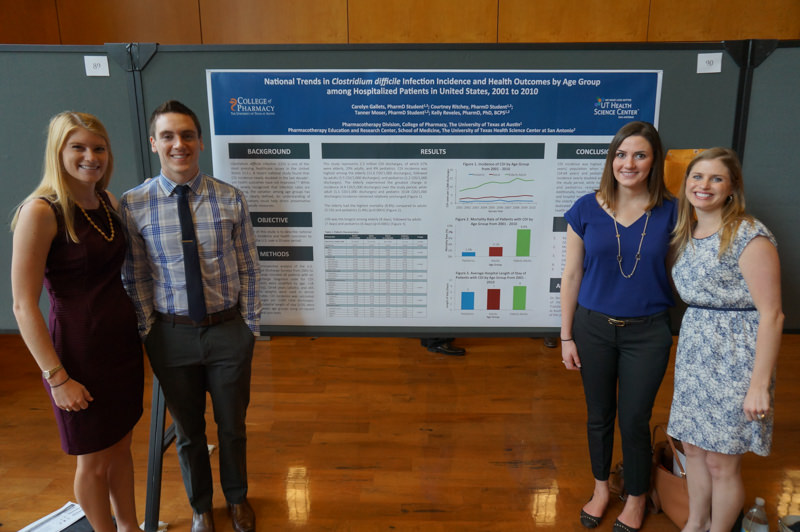
In graduate school, I tried to give myself as
many different experiences as possible, including research, teaching, and
service, to tease out if there were certain areas I liked more than others that
would ultimately drive my career decision.
In the end though, I liked
everything about academia – the freedom, but also the challenge, of building my
own research program and being able to serve as a mentor to students.
Teaching
has always been important to me, so to be able to combine my love of research
and teaching in an academic position was perfect. I also developed a passion
for the study of healthcare-associated infections, and ultimately looked for a
position that would allow me to pursue that passion.
I absolutely loved coming
to work every day during graduate school and I can definitely say the same now
that I am in the career I envisioned.
Can you describe what a
typical day looks like for you?
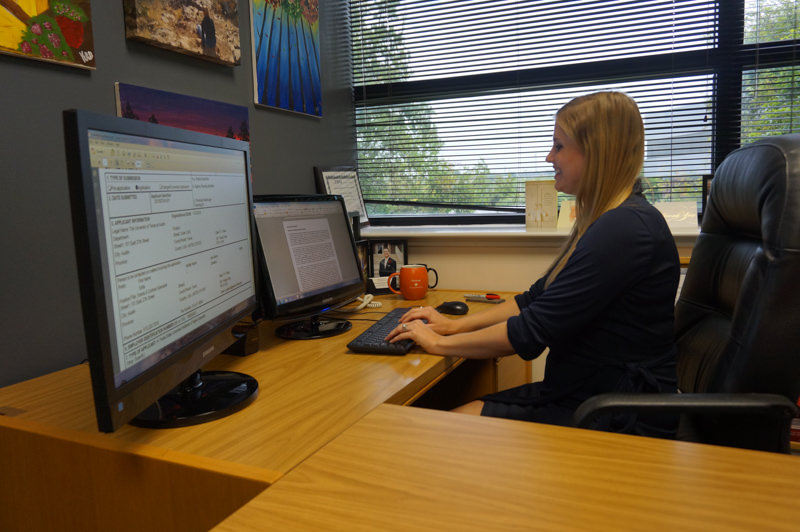
I spend approximately three-quarters of my time
conducting clinical and translational research in infectious diseases, with a
focus on Clostridium difficile
infections.
This includes a variety of activities, including project design,
data gathering and analysis, manuscript preparation, and grant writing. The
other quarter of my time is devoted to teaching and university and professional
service activities.
Some of these activities include providing lectures,
supervising laboratory courses, mentoring Pharm.D. and graduate student
research projects, advising student organizations, and participating on
university committees.
What advice would you
give to graduate students looking to get into the same field?

Early in graduate school, develop a vision for
your future career and take as many opportunities as you can to develop the
skills needed to succeed. Work to improve your writing skills and aim to publish
in peer-reviewed journals regularly.
If you are planning on pursuing an
academic position where you will support yourself through research, write grant
proposals now and have them critiqued by senior mentors. Grant funding received
during graduate school will greatly increase your competitiveness for jobs
following graduation.
Lastly, learn how to develop a research budget and how to
actually use the funds once they are awarded. This has been one of my biggest
struggles as a new faculty member.
What did you wish you
had known in graduate school?
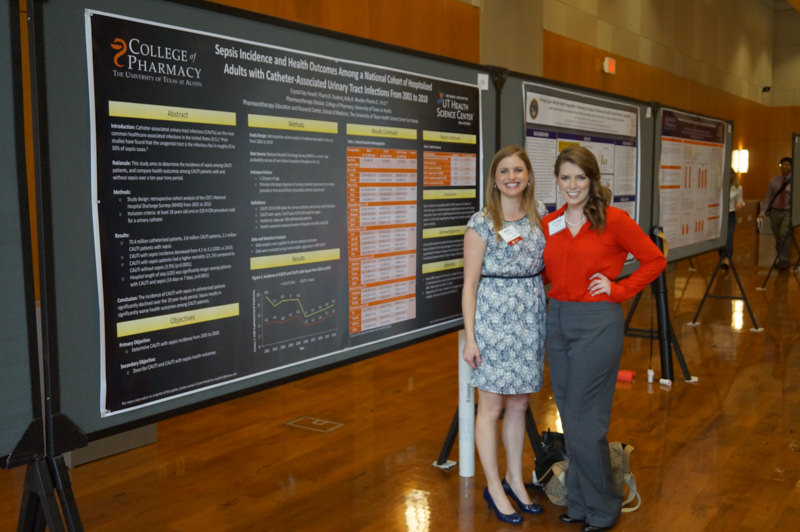
Graduate school is hard, but an academic
position is harder. There are definite perks to being out of school, but there
are far more responsibilities once you become independent of your graduate
school mentor.
You have to balance other tasks, like teaching, college
committees, and supervising your research staff. There is also the pressure to independently
fund your research program, which is especially difficult as grant funding
becomes more and more competitive.
That being said, use your time in graduate
school to prepare you for these things by participating in multiple activities
you are likely to encounter in the career you want and build a network of
professional and personal support to encourage you along the way.
